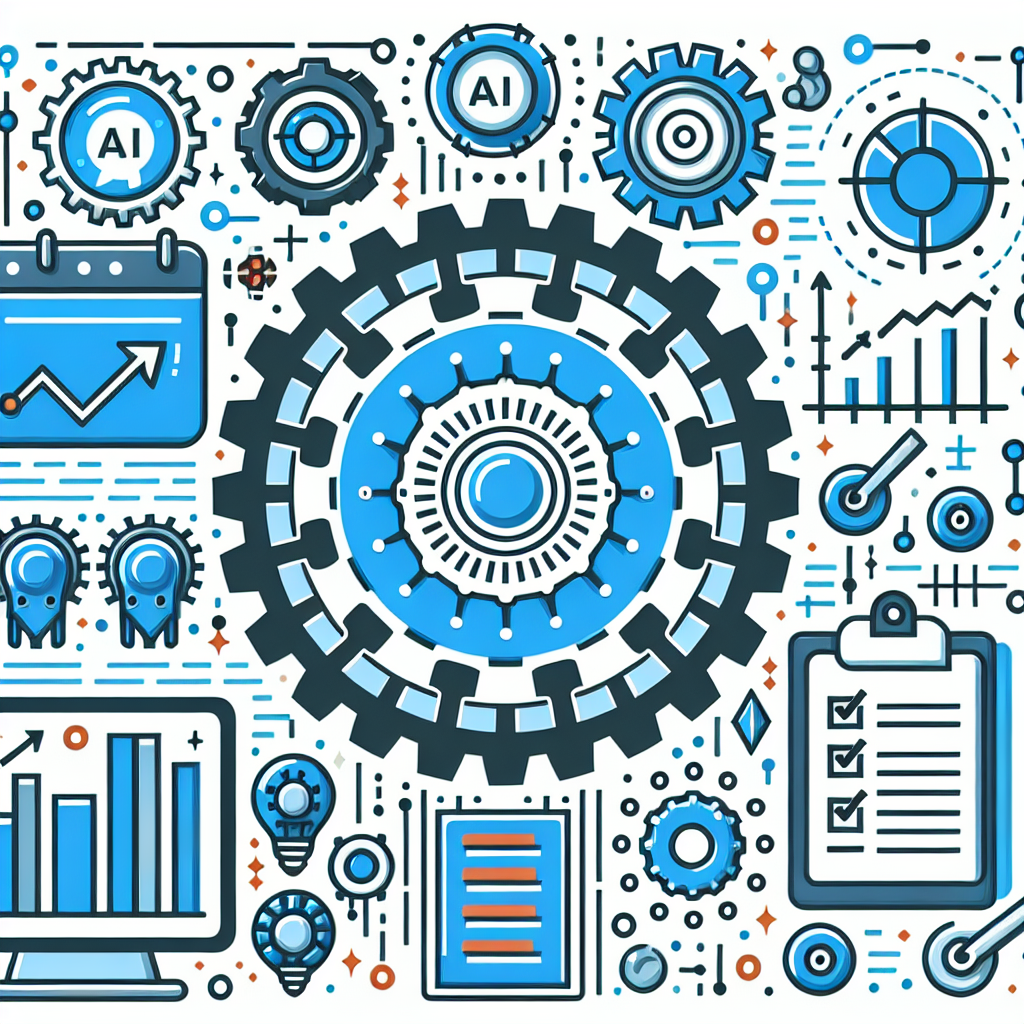AI Project Management: Best Practices for Implementation
Artificial Intelligence (AI) has revolutionized the way projects are managed in various industries. AI project management involves using machine learning algorithms to automate tasks, analyze data, and make predictions to improve project outcomes. In this article, we will discuss the best practices for implementing AI project management and how it can benefit your organization.
Benefits of AI Project Management
AI project management offers several benefits that can help organizations streamline their project processes and achieve better results. Some of the key benefits of AI project management include:
1. Automation: AI can automate repetitive and time-consuming tasks, such as data entry, scheduling, and reporting, allowing project managers to focus on more strategic activities.
2. Data analysis: AI algorithms can analyze large volumes of data to identify trends, patterns, and insights that can help project managers make better decisions.
3. Predictive analytics: AI can predict project risks, delays, and resource constraints, allowing project managers to proactively address issues before they escalate.
4. Resource optimization: AI can optimize resource allocation by matching tasks with the most suitable team members based on their skills, availability, and workload.
5. Real-time monitoring: AI can monitor project progress in real-time and provide alerts and recommendations to keep projects on track.
Best Practices for Implementing AI Project Management
Implementing AI project management requires careful planning and execution to ensure a successful implementation. Here are some best practices to consider when implementing AI project management in your organization:
1. Define clear objectives: Before implementing AI project management, define clear objectives and goals that you want to achieve with AI. Identify the key pain points in your project management process and determine how AI can help address them.
2. Select the right AI tools: Choose AI tools that are tailored to your project management needs and are compatible with your existing systems. Consider factors such as ease of integration, scalability, and cost when selecting AI tools.
3. Train your team: Provide training to your project team on how to use AI tools effectively and integrate them into their daily workflow. Ensure that your team understands the benefits of AI project management and how it can help improve project outcomes.
4. Start small: Begin by implementing AI project management in a small pilot project to test its effectiveness and identify any challenges or limitations. Use the insights gained from the pilot project to refine your AI implementation strategy.
5. Monitor performance: Continuously monitor the performance of AI project management tools and analyze their impact on project outcomes. Use key performance indicators (KPIs) to measure the success of your AI implementation and make adjustments as needed.
6. Foster a culture of innovation: Encourage a culture of innovation within your organization to promote the adoption of AI project management. Create a supportive environment where team members feel empowered to experiment with new technologies and processes.
7. Collaborate with experts: Collaborate with AI experts, data scientists, and technology vendors to gain insights on the latest trends and best practices in AI project management. Leverage their expertise to optimize your AI implementation and achieve better results.
FAQs
Q: What are some common challenges in implementing AI project management?
A: Some common challenges in implementing AI project management include resistance to change, lack of expertise, data quality issues, and integration with existing systems. It is important to address these challenges proactively to ensure a successful AI implementation.
Q: How can AI project management improve project outcomes?
A: AI project management can improve project outcomes by automating tasks, analyzing data, predicting risks, optimizing resource allocation, and monitoring project progress in real-time. These capabilities can help project managers make better decisions and achieve project goals more efficiently.
Q: What skills are required to implement AI project management?
A: Implementing AI project management requires a combination of technical skills, such as data analysis, machine learning, and programming, as well as project management skills, such as strategic planning, communication, and leadership. It is important to have a multidisciplinary team with the right mix of skills to successfully implement AI project management.
Q: How can organizations measure the ROI of AI project management?
A: Organizations can measure the ROI of AI project management by tracking key performance indicators (KPIs) such as project completion time, cost savings, resource utilization, and customer satisfaction. By comparing these metrics before and after implementing AI project management, organizations can quantify the benefits and determine the ROI of their AI investment.
In conclusion, AI project management offers several benefits that can help organizations improve project outcomes and achieve better results. By following best practices for implementing AI project management and addressing common challenges, organizations can leverage the power of AI to streamline their project processes and drive innovation. By fostering a culture of innovation and collaboration, organizations can maximize the potential of AI project management and stay ahead of the competition.

